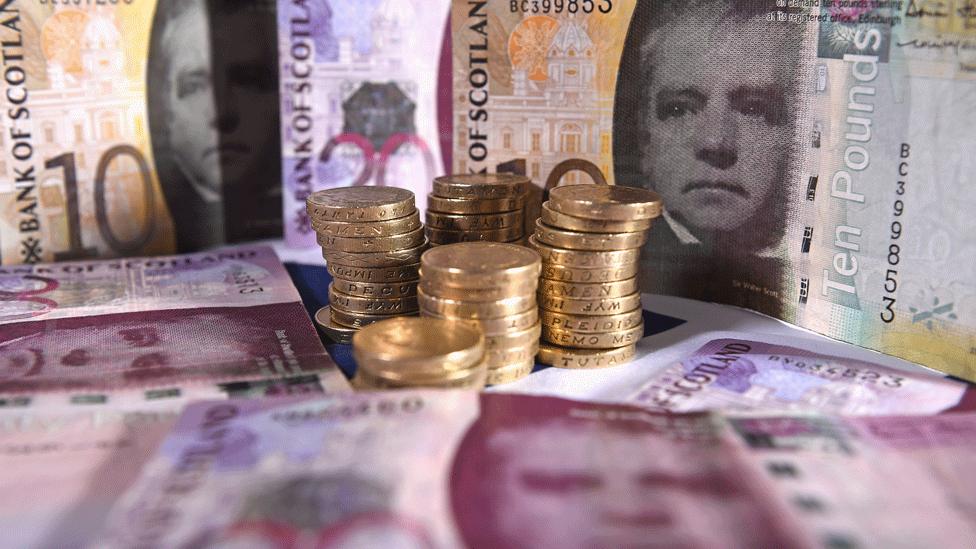Scottish budget passes committee stage with unanimous votes
- Published
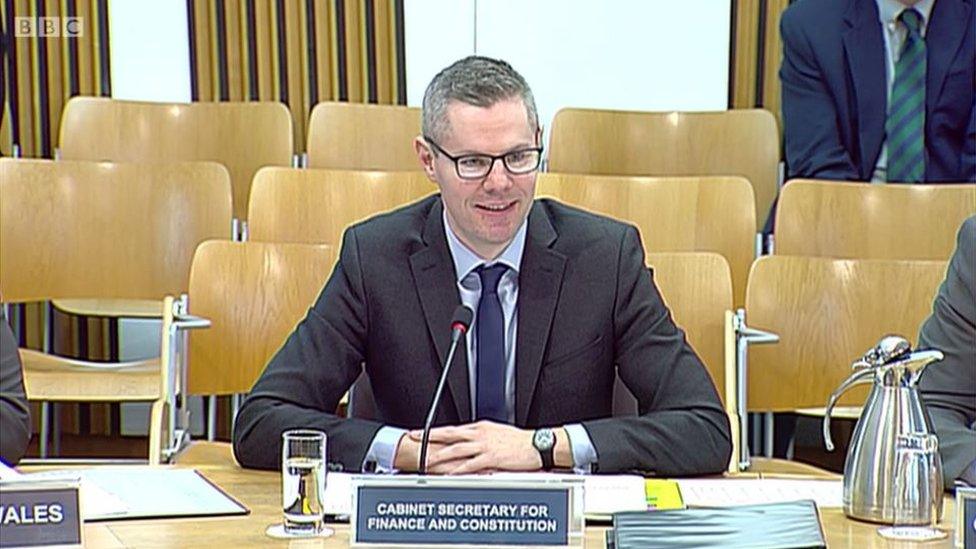
Derek Mackay said the revised budget plan was "even stronger and fairer" for local services
The Scottish budget has passed the second stage of the legislative process after amendments were unanimously passed by Holyrood's finance committee.
Members questioned Finance Secretary Derek Mackay about the deal he struck with the Greens to pass his proposals.
Mr Mackay explained how the deal was funded, denying claims he had a "slush fund" in reserve for negotiations.
The budget faces two final hurdles, in the form of separate tax and spending votes in the Holyrood chamber.
The finance committee's report on the budget said it was "critical" there was "complete transparency" over the plans, given the potential for "a much higher level of uncertainty and volatility" in budgets due to Holyrood's new powers and Brexit.
In an analysis of the deal, external immediately after it was announced, the Fraser of Allander Institute think-tank said it was"as yet unclear" where the extra money included in the deal had come from.
The group, which also raised concerns about "double counting" in the original draft of the budget, called on the government to set out the exact breakdown of where the funds were sourced.
This call was repeated by members of the committee, with Labour's James Kelly claiming Mr Mackay had a "slush fund" of cash to strike a deal.
Conservative MSP Murdo Fraser also the SNP had "squirreled" away funds "down the back of the sofa" for a budget deal, questioning how this affected Holyrood's ability to scrutinise the budget.
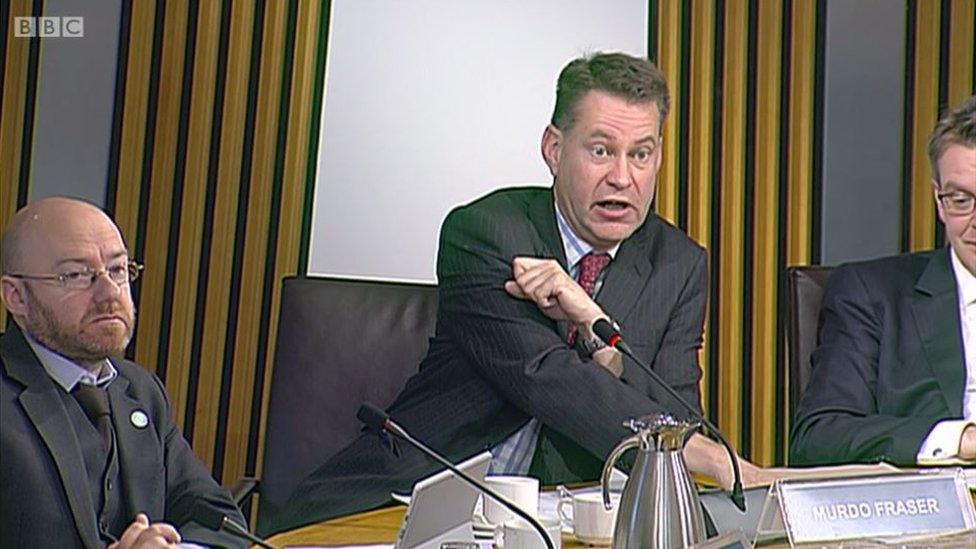
Murdo Fraser said Mr Mackay had found cash "down the back of the sofa" for a budget deal
Mr Mackay said the claims he had deliberately reserved funds for a deal were "not accurate, fair or reasonable", saying Mr Kelly was "displaying an astonishing lack of awareness" about how the budget process worked.
He said he "had to work hard to identify resources" to build consensus, saying he had overturned "every possible stone" looking for extra funds.
The finance secretary detailed where the £220m of funding for the deal came from, including:
£125m of underspends from the budget exchange mechanism
£60m of funds from the non-domestic rates pool
£29m from freezing the threshold of the 40p rate of tax
£6m of reductions in borrowing costs
Mr Mackay said in light of this use of funds, his "room for manoeuvre for future years" was now "somewhat limited".
There were also questions over the settlement for local government, which Mr Kelly said still faced a £170m cut, accusing the government of "tinkering around the edges" of tax reform instead of taking a bold approach.
The finance secretary insisted local services would be boosted by up to £400m of "spending potential", factoring in increases to council tax and ring-fenced funds for schools and health and social care partnerships.
He said the allocation had been "strong and fair" in the original plan, and said it was now "even stronger and fairer".
Scottish Greens co-convener Patrick Harvie, who struck a deal with Mr Mackay for all three stages of the budget, said the allocation for local government had moved from "a severe cut" to being "just about good enough".
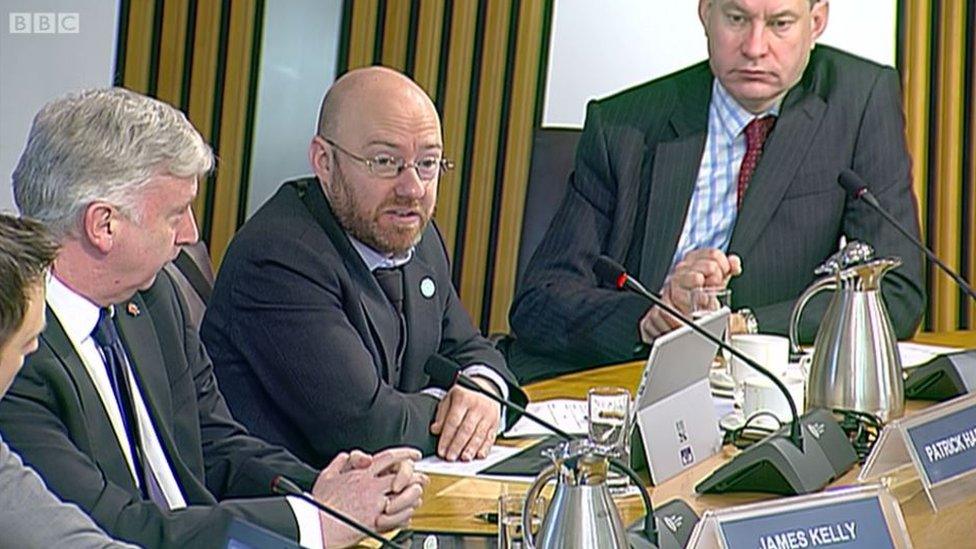
Patrick Harvie said the allocation for local government was now "just about good enough"
Mr Mackay's budget as outlined in December included extra funding for the NHS, cash for affordable homes and energy efficiency projects, business rates exemptions for 100,000 small firms and extra investment in childcare and efforts to cut the attainment gap in schools.
There was a row over the amount of funding going to councils, with the direct grant falling but Mr Mackay argued this was offset by new ring-fenced cash for schools and health and social care partnerships.
The deal with the Greens adds an extra £160m of direct funding for councils beyond the original draft, although Labour argues this remains a reduction on previous allocations.
It would also see a freezing of the threshold for the higher 40p rate of tax, which was originally to rise with inflation to £43,430 but will now be fixed at £43,000.
It will start at £45,000 elsewhere in the UK, which the Conservatives claim would make Scotland "the highest-taxed part of the UK".
Mr Harvie said this was "the biggest budget concession in Holyrood's history".
Mr Mackay argues that the budget "will have a positive impact on our economy, public services, our communities and our environment".
After quizzing Mr Mackay, the committee took evidence on the government's plans for a new "air departure tax" to replace air passenger duty.
- Published2 February 2017
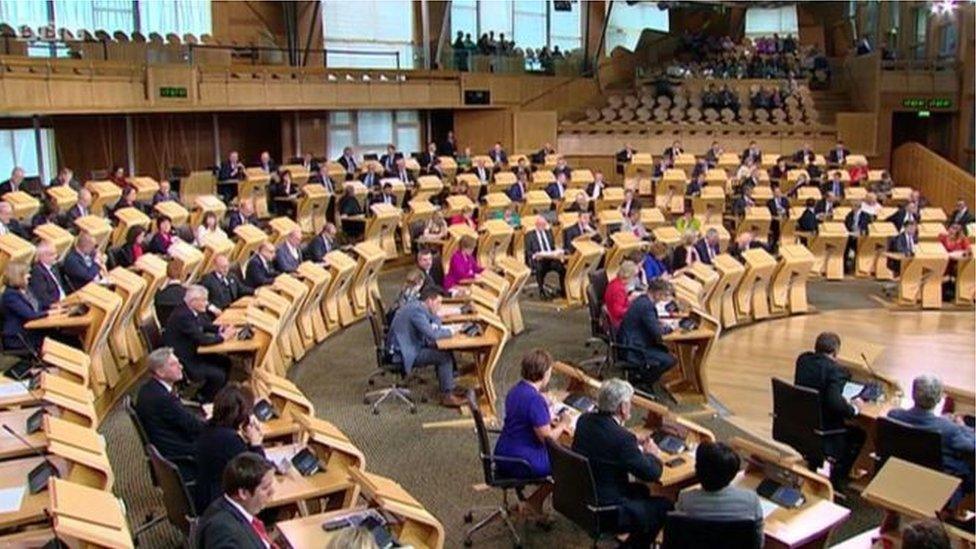
- Published27 January 2017
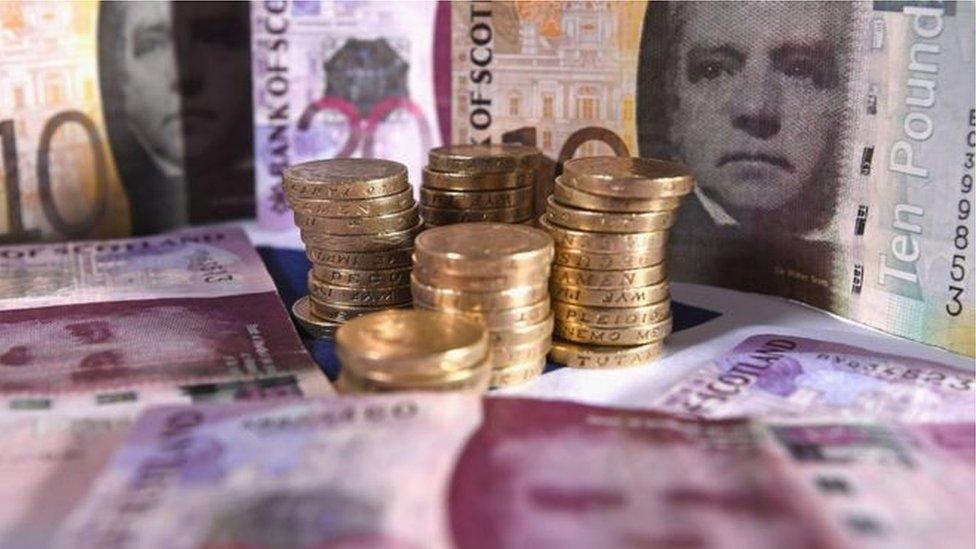
- Published19 December 2016
